Over 140 years ago, Friedrich Engels noted how the private ownership of the land, the drive for profit and the degradation of nature go hand in hand.
Michael Roberts is an Economist in the City of London and a prolific blogger
Cross-posted from Michael Roberts Blog
There is now firm evidence of a strong link between environmental destruction and the increased emergence of deadly new diseases such as Covid-19. Indeed, increasing numbers of deadly new pandemics will afflict the planet if levels of deforestation and biodiversity loss continue at their current catastrophic rates. That is the conclusion of scientists who will present reports at the end of this month to the United Nations Summit on Biodiversity under the theme of “Urgent action on biodiversity for sustainable development.”
There delegates will hear that rampant deforestation, uncontrolled expansion of farming and the building of mines in remote regions – as well as the exploitation of wild animals as sources of food, traditional medicines and exotic pets – are creating a “perfect storm” for the spillover of diseases from wildlife to people.
Almost a third of all emerging diseases have originated through the process of land use change. As a result, five or six new epidemics a year could soon affect Earth’s population. “There are now a whole raft of activities – illegal logging, clearing and mining – with associated international trades in bushmeat and exotic pets that have created this crisis,” says Stuart Pimm, professor of conservation at Duke University. “In the case of Covid-19, it has cost the world trillions of dollars and already killed almost a million people, so clearly urgent action is needed.”
It is estimated that tens of millions of hectares of rainforest and other wild environments are being bulldozed every year to cultivate palm trees, farm cattle, extract oil and provide access to mines and mineral deposits.
This leads to the widespread destruction of vegetation and wildlife that are hosts to countless species of viruses and bacteria, most unknown to science. Those microbes can then accidentally infect new hosts, such as humans and domestic livestock. Such events are known as spillovers. Crucially, if viruses thrive in their new human hosts they can infect other individuals. This is known as transmission and the result can be a new, emerging disease.
Zoologist David Redding, of University College London explains what happens in places where trees are being cleared, mosaics of fields, created around farms, appear in the landscape interspersed with parcels of old forest. “This increases the interface between the wild and the cultivated. Bats, rodents and other pests carrying strange new viruses come from surviving clumps of forests and infect farm animals – who then pass on these infections to humans.”
In the past many outbreaks of new diseases remained in contained areas. However, the development of cheap air travel has changed that picture and diseases can appear across the globe before scientists have fully realised what is happening. “The onward transmission of a new disease is also another really important element in the pandemic story,” said Professor James Wood, head of veterinary medicine at Cambridge University. “Consider the swine flu pandemic. We flew that around the world several times before we realised what was going on. Global connectivity has allowed – and is still allowing – Covid-19 to be transmitted to just about every country on Earth.”
In a paper published in Science last month, Pimm, Dobson and other scientists and economists propose setting up a programme to monitor wildlife, reduce spillovers, end the wildlife meat trade and reduce deforestation.
They estimate that such a scheme could cost more than $20bn a year, a price tag that is dwarfed by the cost of the Covid-19 pandemic, which has wiped trillions of dollars from national economies round the world. Spending of about $260bn over 10 years would substantially reduce the risks of another pandemic on the scale of the coronavirus outbreak, the researchers estimate, which is just 2% of the estimated $11.5tn costs of Covid-19 to the world economy. Furthermore, the spending on wildlife and forest protection would be almost cancelled out by another benefit of the action: cutting the carbon dioxide emissions driving the climate crisis.
In the report, several estimates of the effectiveness and cost of strategies to reduce tropical deforestation are made. At an annual cost of $9.6 billion, direct forest-protection payments to outcompete deforestation economically could achieve a 40% reduction in areas at highest risk for virus spillover.
A recent report, from the New Nature Economy project, published by the WEF, says: “We are reaching irreversible tipping points for nature and climate. If recovery efforts do not address the looming planetary crises, a critical window of opportunity to avoid their worst impact will be irreversibly lost.”
And yet the cost of action to deal with these impending disasters would be not much more than the recent fiscal spending by governments to save jobs and businesses from the current COVId-19 pandemic.
What is not mentioned in any of these reports is that is the drive for profit under the capitalist mode of production which breaks the necessary connection between human activity and nature. It is not ‘illegal logging, clearing and mining’ or wildlife markets that are the problems. They are the symptoms of the expansion of productive forces under capitalism. Logging and forest burning and clearing are done not only by large corporations, but also by many poor farmers unable to make a living as the land and technology is mainly owned and exploited by big business. It is the very uneven development of capitalist accumulation that is the fundamental cause.
Over 140 years ago, Friedrich Engels noted how the private ownership of the land, the drive for profit and the degradation of nature go hand in hand. “To make earth an object of huckstering — the earth which is our one and all, the first condition of our existence — was the last step towards making oneself an object of huckstering. It was and is to this very day an immorality surpassed only by the immorality of self-alienation. And the original appropriation — the monopolization of the earth by a few, the exclusion of the rest from that which is the condition of their life — yields nothing in immorality to the subsequent huckstering of the earth.” Once the earth becomes commodified by capital, it is subject to just as much exploitation as labour.
Yes, science helps us to understand what is happening. As Engels said, “ with every day that passes we are learning to understand these laws more correctly and getting to know both the more immediate and the more remote consequences of our interference with the traditional course of nature. … But the more this happens, the more will men not only feel, but also know, their unity with nature, and thus the more impossible will become the senseless and antinatural idea of a contradiction between mind and matter, man and nature, soul and body.”
We need the work of climate change and environments scientists because “by collecting and analyzing the historical material, we are gradually learning to get a clear view of the indirect, more remote, social effects of our productive activity, and so the possibility is afforded us of mastering and controlling these effects as well.” (Engels).
But the reports of the scientists at the UN meeting and others and making people aware are not enough. The Extinction Rebellion recently issued a statement saying that “we are not a socialist movement. We do not trust any single ideology, we trust the people to find the best future for us all. A banner saying socialism or extinction does not represent us.” Well, maybe Extinction Rebellion does not recognise that the battle to save the planet is connected to replacing the capitalist mode of production. But ER’s view contrasts, it seems, from that of climate activist Greta Thubergh, who recently said that “The climate and ecological crisis cannot be solved within today’s political and economic systems. That isn’t an opinion. That’s a fact.”
As Engels said: “To carry out this control requires something more than mere knowledge.” Science is not enough. “It requires a complete revolution in our hitherto existing mode of production, and with it of our whole contemporary social order.”

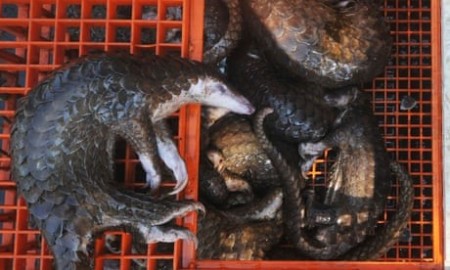
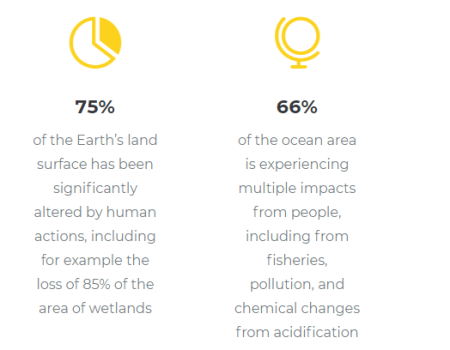
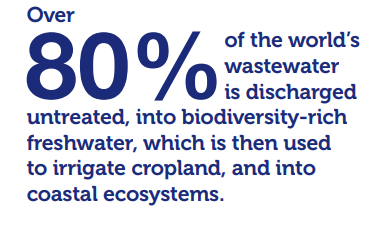
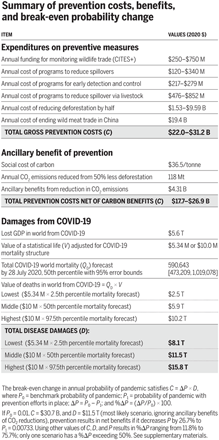
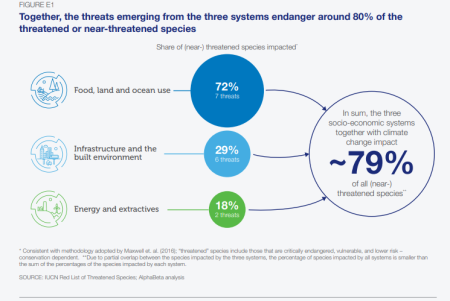
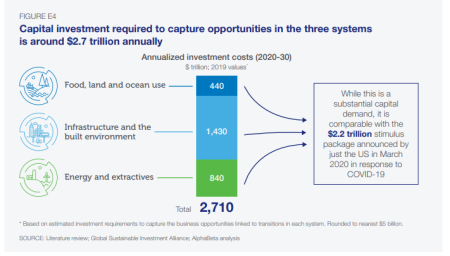
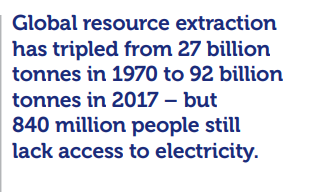


Be the first to comment